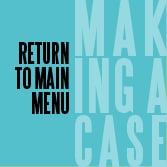- Heritage 101
- Advocacy
- Accessibility for Historic Places
- Climate & Sustainability
- Cultural Maps
- Heritage Place Conservation
- Heritage Policy & Legislation
- Homeowners
- Intangible Cultural Heritage
- Reconciliation
- Indigenous Cultural Heritage
- Setting the Bar: A Reconciliation Guide for Heritage
- 1. Heritage and Reconciliation Pledge
- 2. Acknowledging Land and People
- 3. Celebrating Days of Recognition and Commemoration
- 4. With a Commitment to Learn
- 5. Committing to Strategic Organizational Diversity
- 6. Mission-Making Room for Reconciliation
- 7. Possession, Interpretation, Repatriation and Cultural Care
- 8. Shared Decision Making
- 9. Statements of Significance and other heritage planning documents
- 10. Heritage Conservation Tools, Local Government Act
- Racism: Do Not Let the Forgetting Prevail
- Taking Action: resources for diversity and inclusion
Making a Case for Heritage: People Care
 This section will help you to describe the importance people place on heritage.
This section will help you to describe the importance people place on heritage.
The first part provides impressive statistics, while the second part offers ideas to help you to develop your local case.
Canadians prioritize heritage
In a recent survey for the Canadian government, 80% of Canadians surveyed said they visited a heritage institution or site, and they placed historic buildings, sites and museums at the top of the list of interests. Most importantly, Canadians said the opportunity to visit heritage institutions influenced their choice of travel destinations, especially when they are traveling within Canada. And best of all, visitation at cultural institutions is on the increase.
Canadian see value and potential in museums.
In the same survey, virtually everyone surveyed placed importance on a museum’s role to preserve the past and to provide learning experiences. A significant majority (91%) believe museums should attract tourists.
Canadians want local.
Canadians are more likely to visit local heritage institutions than when they are traveling elsewhere in Canada or internationally. 3 out of 4 (76%) surveyed said they visited at least one local heritage institution (in the past 12 months). This is considerably higher than those who said they visited heritage institutions while traveling within Canada (54%) and while traveling internationally (38%).
Heritage creates better communities
85% of the Canadian surveyed believe their local museum and heritage centre contribute to the quality of life in their community.
Heritage connects
Developing pride of place and community connectivity is important to all governments. 80% of Canadians agree arts and heritage experiences help them feel part of their local community. 95% agree arts and cultural activities in a community make it a better place to live.
B.C.’s museums, galleries, cultural centres and historic places connect us to our history, art, science, creativity, culture, nature and each other
- 11 million annual visitors to B.C. cultural heritage institutions
- The collections of B.C. cultural institutions include 4.6 million+ artefacts and objects, 699,081 linear metres of textual records, 17.8 million graphic materials, 92,384 natural history/scientific specimens, 74,370 hours of film, video and sound recordings and over 2,300 permanent exhibitions
- 33.7 million online visits to digital collections
- $225 million in revenue each year for B.C. museums
- 4,440 people employed in B.C. art galleries, museums, historic sites, archives and not-for-profit heritage institutions
- 1 million volunteer hours by more than 19,500 volunteers
Developing a Local Story: People Care
Use the intrinsic-instrumental-institutional framework to develop a well-rounded description of heritage in your community. Here are some suggestions to help you get started. (Read this short introduction to our recommended approach to making a case.)
Intrinsic
What are people saying?
- Collect information in comment books, through conversations, and requests for statements. The message is more powerful when it comes from someone else.
Instrumental
What is your local draw?
- Estimate the number of locals who visit your site in a year and divide by the local population. Sometimes the percentage of locals can be impressively high, especially in smaller communities.
- Consider surveys that produce similar statistics to those found in the first part; for example:
- To what degree does [your museum] contribute to the quality of life in [municipality]?
- To what degree should the museum provide learning experiences about our community?
- How important is visiting a museum or historic site when traveling?
- How important is it to our community that it has a vibrant museum?
- To what extent does the community historic site help you feel connected to our community?
Institutional
What is your organization’s contribution to the community?
- As mentioned elsewhere, consider all the ways you contribute to your community. Do not rely on vague phrases (“we are impactful”), but be specific and describe the actual impact (e.g. how do you measure the impact).
Arts and Heritage in Canada: Access and Availability Survey 2012 Department of Canadian Heritage (source)
Arts and Heritage Access and Availability Survey 2016-2017 (source)
